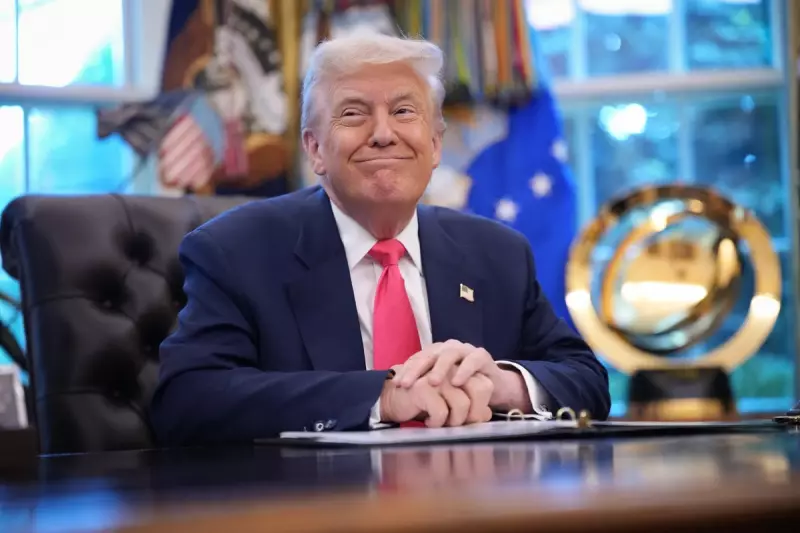
In a move that is set to redefine the debate on America's role in global conflicts, former President Donald Trump has made an audacious promise to end the war in Ukraine within 24 hours of returning to the Oval Office.
The pledge was made in a campaign-style video posted to his social media platform, Truth Social, where he positioned himself as the sole dealmaker capable of halting the bloodshed. This bold claim directly challenges the ongoing military and financial support provided to Kyiv by the Biden administration and other NATO allies.
The 'Philosophy of Conflict'
Trump's video outlined a starkly different approach to international diplomacy, one rooted in his self-proclaimed prowess in negotiation. He asserted that the current administration's policies have needlessly escalated tensions and wasted American resources.
'The war between Russia and Ukraine never would have happened if I were President,' he stated, echoing a frequent refrain from his rallies. His proposed solution hinges on leveraging what he calls a strong relationship with both Ukrainian and Russian leaders to force a rapid settlement, though he provided no specific details on the terms of such a deal.
Implications for NATO and Global Security
This promise is more than a simple campaign soundbite; it is a direct affront to the established Western policy of bolstering Ukraine's defence. Experts are alarmed at the potential ramifications, suggesting it could signal a willingness to pressure Ukraine into accepting terms favourable to Moscow, effectively rewarding Russian aggression.
The announcement has sent shockwaves through European capitals, where leaders have expressed deep concern over the potential for a sudden and unilateral shift in US foreign policy that could undermine the NATO alliance and embolden adversaries worldwide.
A Calculated Political Strategy
Analysts view this video as a key pillar of Trump's 2024 election strategy, designed to appeal to a segment of voters weary of overseas entanglements and high military spending. By framing himself as the candidate of peace and negotiation, he draws a clear contrast with the current presidency.
However, critics have been swift to label the promise as dangerously naive and a product of political theatre, questioning the feasibility of resolving a deeply complex, multi-faceted war in a single day without catastrophic concessions.
As the 2024 race heats up, this pledge ensures that America's future stance on international conflict will be a central and fiercely contested issue on the world stage.





